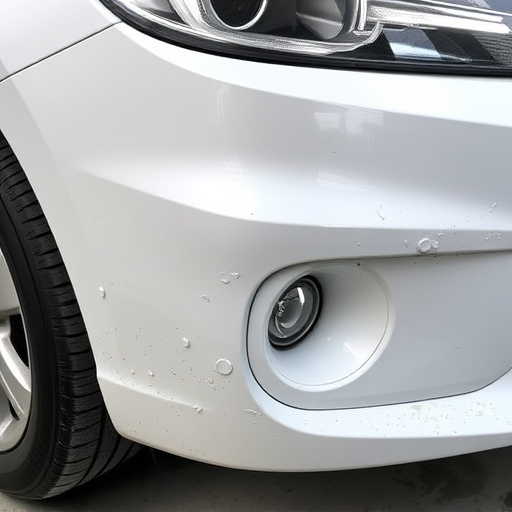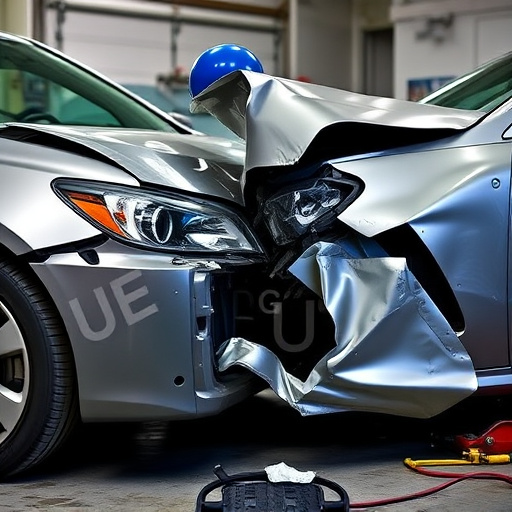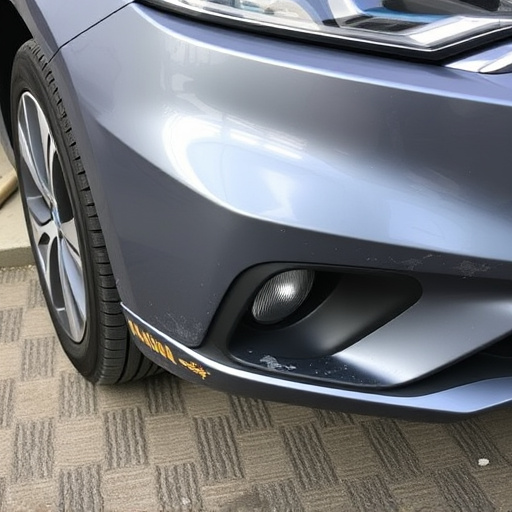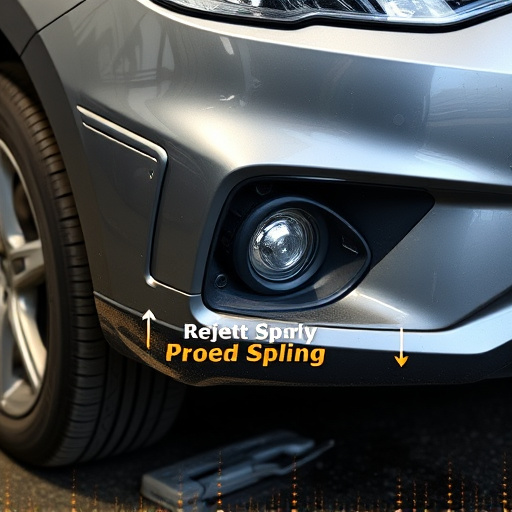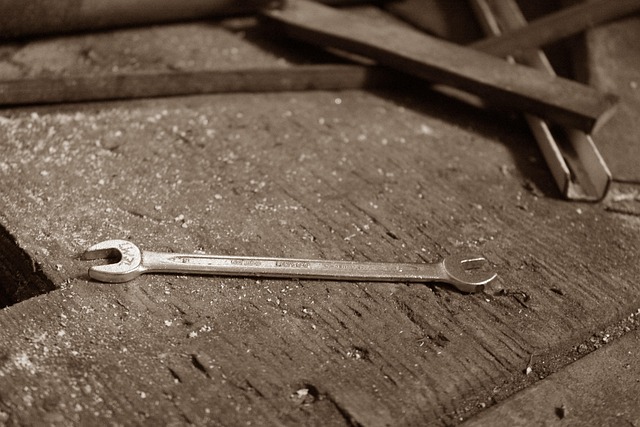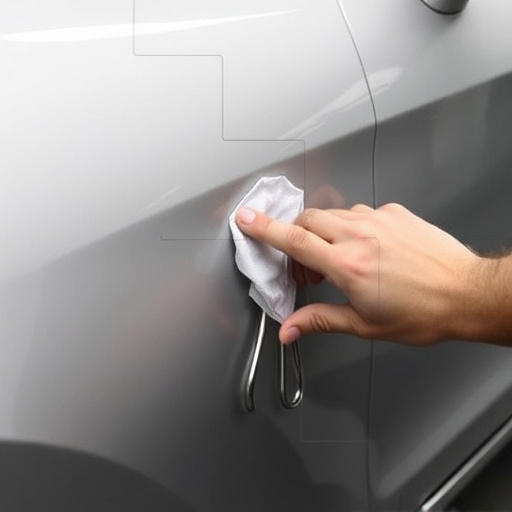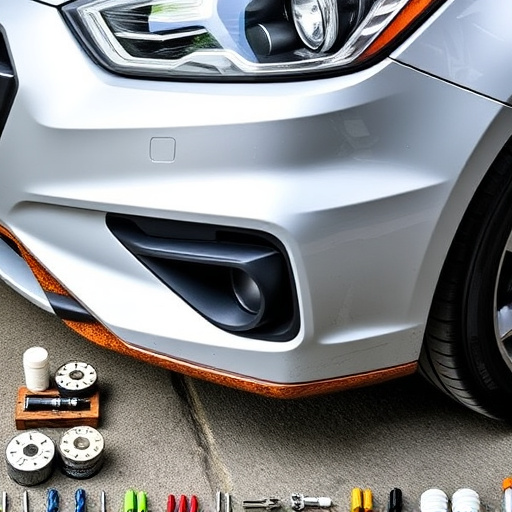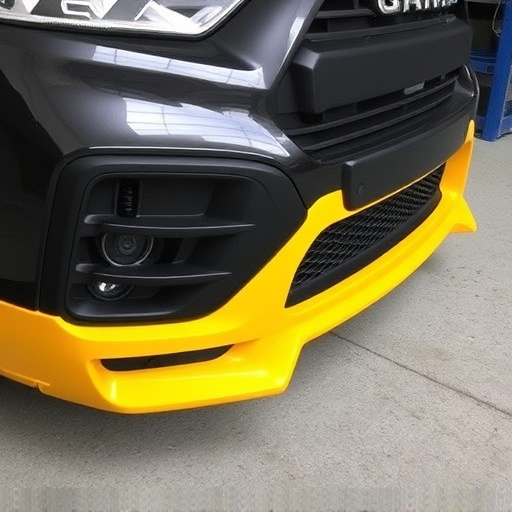Aluminum body components offer significant advantages over traditional materials like steel and carbon fiber components in auto body services. Its lightweight nature improves fuel efficiency and handling while ensuring exceptional corrosion resistance for longevity, even in harsh conditions. Unlike carbon fiber, which may degrade over time, aluminum retains its structural integrity, making it versatile for various repair scenarios, from minor dents to significant damage. Aluminum's accessibility, affordability, and precision-shaping capabilities make it a preferred choice for car collision repair, offering a robust yet lightweight solution that enhances vehicle safety, streamlines the repair process, and maintains aesthetic appeal over time.
In the realm of automotive repairs, technicians are increasingly turning to aluminum body components as a game-changer. This preference is not without reason; aluminum offers a unique blend of lightweight and durable properties, making it a superior choice for enhancing repair processes. While carbon fiber components have gained traction for their strength-to-weight ratio, aluminum’s accessibility and cost-effectiveness make it a practical alternative. This article explores why technicians favor aluminum, delving into its advantages over carbon fiber components in terms of durability, cost, and versatility, ultimately shaping modern repair practices.
- Lightweight and Durable: Advantages of Aluminum in Repair
- – Exploring the unique properties of aluminum that make it a preferred choice for technicians
- – How lightweight yet robust nature benefits repair processes
Lightweight and Durable: Advantages of Aluminum in Repair

Aluminum body components offer a unique advantage over traditional materials like steel and even carbon fiber components in the realm of auto body services. Its inherent lightweight nature makes it a preferred choice for vehicle dent repair, as it reduces the overall weight of the vehicle without compromising strength. This is particularly beneficial when it comes to tire services, as the lower mass can enhance fuel efficiency and handling.
The durability of aluminum is another key factor. It possesses exceptional corrosion resistance, ensuring longevity even in harsh environmental conditions. Unlike some carbon fiber components, which may be more susceptible to damage or degradation over time, aluminum retains its structural integrity, providing reliable performance across various auto body repair scenarios, from minor bumps and scratches to more extensive damage.
– Exploring the unique properties of aluminum that make it a preferred choice for technicians
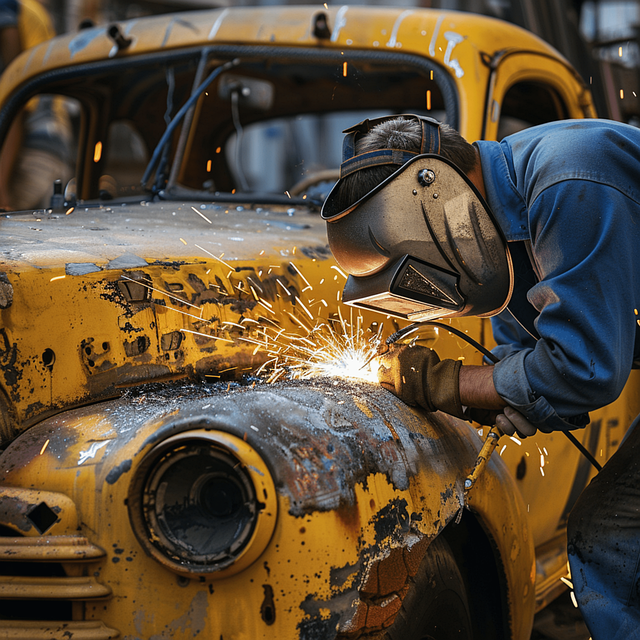
Aluminum has emerged as a favorite material among technicians for auto body work and vehicle paint repair due to its exceptional properties. Its lightweight nature is a significant advantage, especially in collision repair shops where reducing weight improves fuel efficiency and handling without compromising strength. This metal excels in corrosion resistance, ensuring that repaired vehicles remain sturdy and protected against rust, which can be a common issue with steel bodies.
Furthermore, aluminum’s versatility allows for intricate designs and easy formability, enabling technicians to achieve precise results during auto body work. Unlike carbon fiber components, which are costly and challenging to mold, aluminum can be easily cut, bent, and shaped, making it more accessible and affordable for various repair needs.
– How lightweight yet robust nature benefits repair processes
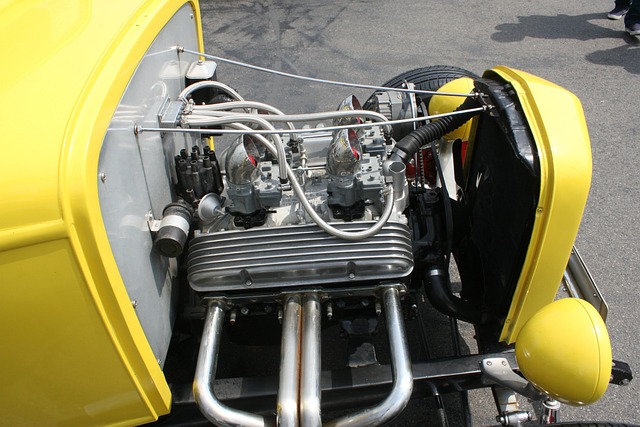
The lightweight yet robust nature of aluminum body components is a significant advantage for technicians involved in car collision repair and auto body work. This unique quality allows for easier handling during dent removal processes, making it an ideal material choice for precise and efficient repairs. Aluminum’s strength-to-weight ratio ensures that vehicles can withstand impact without compromising structural integrity, which is crucial for safety.
Unlike heavier alternatives like steel, aluminum doesn’t demand as much energy to shape and form, streamlining the repair process. This not only saves time but also reduces the overall environmental impact of auto body work. Moreover, aluminum’s resistance to corrosion ensures that vehicles maintain their aesthetic appeal over time, even after experiencing minor dents or scratches, which is a common occurrence in today’s bustling world of transportation.
Aluminum body components have emerged as a game-changer in automotive repairs, offering a lightweight and durable alternative to traditional materials like carbon fiber. By prioritizing aluminum, technicians can streamline repair processes, enhance vehicle performance, and contribute to more sustainable practices. Its unique properties make it an ideal choice for modern auto care, ensuring both longevity and cost-effectiveness.
